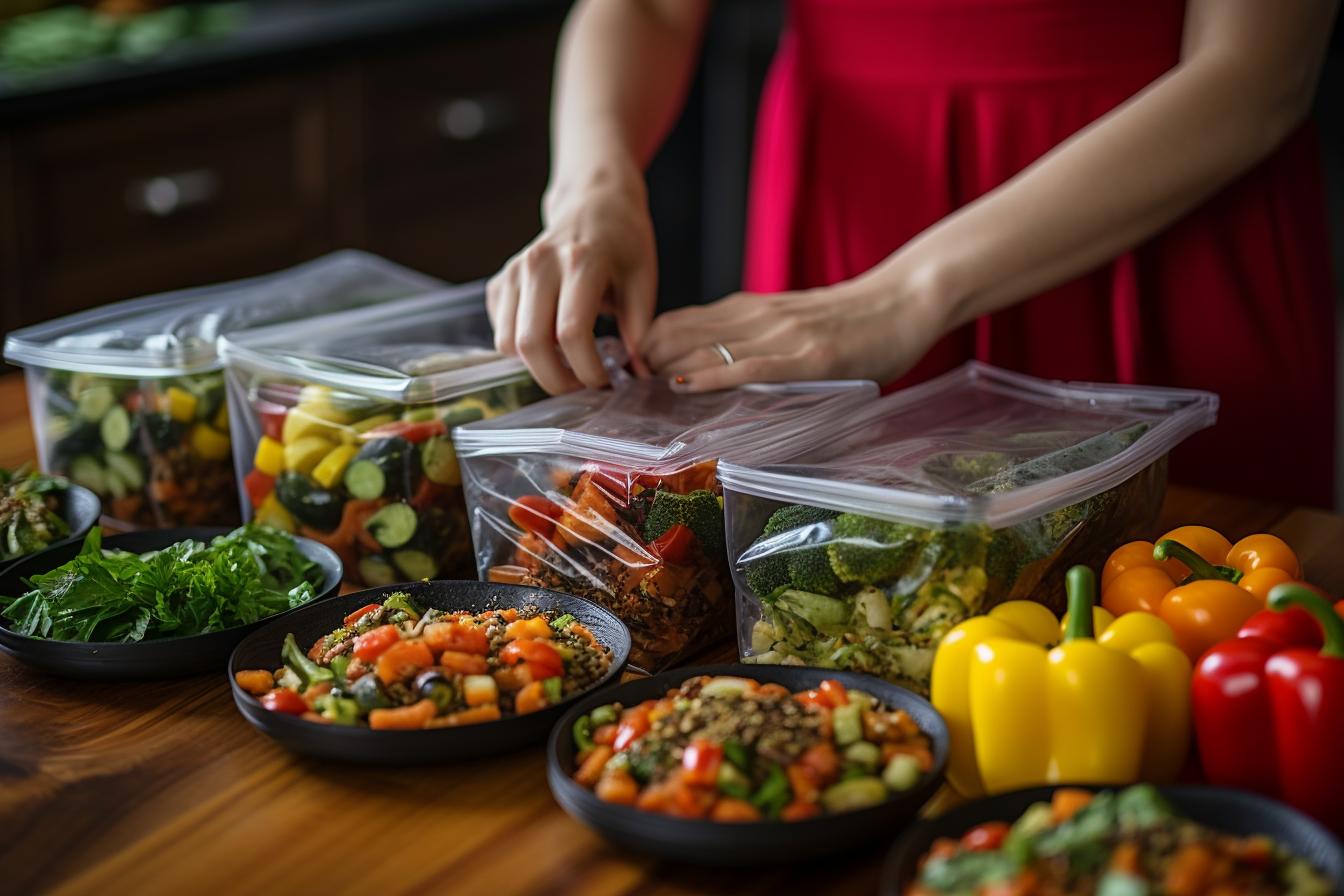The zero waste lifestyle is growing in popularity, and with good reason! By adopting zero waste habits, we can help reduce our environmental impact and create a more sustainable world. But how can we integrate these habits into our daily routine?
1. Rethink your consumption
The first step to integrating zero waste habits into your daily routine is to review your consumption patterns. Opt for durable, reusable products rather than disposable ones. For example, replace plastic bottles with reusable water bottles, plastic bags with cloth bags, and disposable products with more sustainable alternatives.
2. Do your shopping in bulk
Another tip to reduce your ecological footprint is to do your shopping in bulk. More and more stores now offer a bulk section where you can buy products without packaging. Bring your own reusable containers and fill them with the products you need. This not only reduces waste, but also saves money.
3. Favor natural products
In your zero waste approach, also remember to favor natural products. Avoid chemicals and opt for eco-friendly alternatives. For example, use solid soap rather than shower gel in a plastic bottle, or make your own household products using natural ingredients. Not only will this help reduce waste, but it will also benefit your health.
4. Embrace composting
Composting is a great way to reduce organic waste. If you have a garden, you can easily create a compost bin to turn your kitchen waste into rich, fertile compost. If you live in an apartment, there are also indoor composting solutions, such as compost worms. Composting helps reduce waste while creating a natural fertilizer for your plants.
5. Reduce food waste
A large part of our waste comes from our food. To reduce your ecological footprint, make sure to reduce food waste. Plan your meals to avoid impulse purchases and use leftovers to make delicious meals. Buy locally and in season to reduce the impact of transportation. Small actions like these can make a big difference.
6. Raise awareness among those around you
Finally, don’t forget to raise awareness of the zero waste approach among those around you. Talk to them about the benefits of reducing waste and share your tips and experience. Host workshops or events to demonstrate how to incorporate these habits into the daily routine. Change often starts with small individual actions, but it can spread and make a real difference when we act together.
Zero waste travel challenge
Going on a trip while maintaining a zero waste lifestyle can seem complicated at first. However, with proper preparation, it is entirely possible to travel lightly around the planet. Here’s how to incorporate the zero waste philosophy when traveling.
Choice of mode of transport
Transportation is often one of the biggest carbon emitters when traveling. Favoring travel by train or carpool rather than by plane for short distances can make a significant difference. If you must fly, consider offsetting your carbon emissions by investing in reforestation or renewable energy projects.
Durable equipment for the traveler
Consider taking durable equipment with you. A zero waste travel kit could include reusable cutlery, a water bottle, a meal container, as well as a cloth bag for impromptu purchases. In addition, opting for versatile and durable clothing can reduce the need for a large suitcase, which limits the environmental impact linked to overconsumption.
Preparing meals and snacks
Instead of relying on restaurants and fast food joints that can use disposable packaging, why not prepare healthy meals and snacks in advance? Dried fruits, nuts and seeds are great energy options for the road. If you prefer to eat at local restaurants, look for those that use local produce and have sustainable practices.
Eco-friendly accommodation
Many establishments highlight their ecological initiatives. Opt for hotels or hostels that have a zero waste policy, or that are committed to ecological approaches such as the use of renewable energy or water conservation.
Ethical memories
Bringing back souvenirs is a tradition for many travelers. However, focus on locally made handicrafts rather than mass-produced products that may not be sustainable. This also supports the local economy and ensures you bring back something unique.
Pooling resources: a key to a zero waste lifestyle
In our quest for a zero waste lifestyle, an often neglected dimension is the pooling of resources. Pooling can play a crucial role in reducing our ecological footprint while strengthening the social fabric of our communities. Let’s see how this approach can complement and enrich our sustainability efforts.
The art of sharing
In the age of overconsumption, we are often pushed to own more, even if it means accumulating unused items. On the other hand, sharing goods such as tools, household appliances or even vehicles makes it possible to maximize their use while minimizing waste production. Collaborative economy platforms like tool libraries or community garages can help facilitate this process.
The power of communities
Coming together as a community can amplify the impact of our individual actions. By organizing skills exchange workshops, barters or bulk purchasing groups, we can not only reduce our consumption, but also build stronger ties with our neighbors. These interactions enrich our experience while offering us zero waste alternatives.
Opt for shared workspaces
For those who work remotely or are self-employed, coworking spaces are a great way to pool resources. Instead of having multiple printers, coffee machines or meeting rooms for each individual, a shared space can provide everything one needs with a reduced environmental footprint.
Reducing waste through technology
Online applications and platforms, such as those allowing the sharing of objects, the exchange of services or the sale of second-hand items, allow us to give a second life to objects while meeting our needs. These platforms promote a circular economy, where goods are reused rather than thrown away.
Reconnect with nature for a zero waste lifestyle
Reconnecting with nature is not only a return to basics for the soul, it is also a way to reconnect with zero waste practices that were once common in our societies. This deep connection with our environment can offer us new perspectives and solutions to reduce our ecological impact.
A holistic approach to consumption
By observing nature, we understand that everything is interconnected. Likewise, when we consume a product, we should consider its entire life cycle, from its creation to its end of life. By understanding the impacts at each stage, we are better able to make more sustainable and less wasteful choices. For example, by choosing clothing made from natural fibers rather than synthetic ones, we help reduce pollution linked to microplastics.
Teachings of Indigenous Peoples
Indigenous cultures across the world have lived in harmony with nature for millennia. Their traditions and knowledge can offer valuable lessons on how to live sustainably. Learning about ancestral practices, such as wild gathering or the use of medicinal plants, can help us reduce our dependence on industrial products and adopt a lifestyle closer to nature.
Cultivate your own garden
Nothing symbolizes connection with the earth like growing your own garden. Not only does this help reduce food packaging waste, but it also gives us complete control over what we consume. Additionally, gardening is a therapeutic activity that reconnects us with natural cycles and reminds us of the importance of caring for our environment.
Reduce technological impact
Although the technology offers many benefits, it also comes at an environmental cost. Reconnecting with nature can mean taking regular breaks from our electronic devices. This can reduce energy consumption, extend the life of our gadgets and decrease the demand for scarce resources used in their manufacturing.













